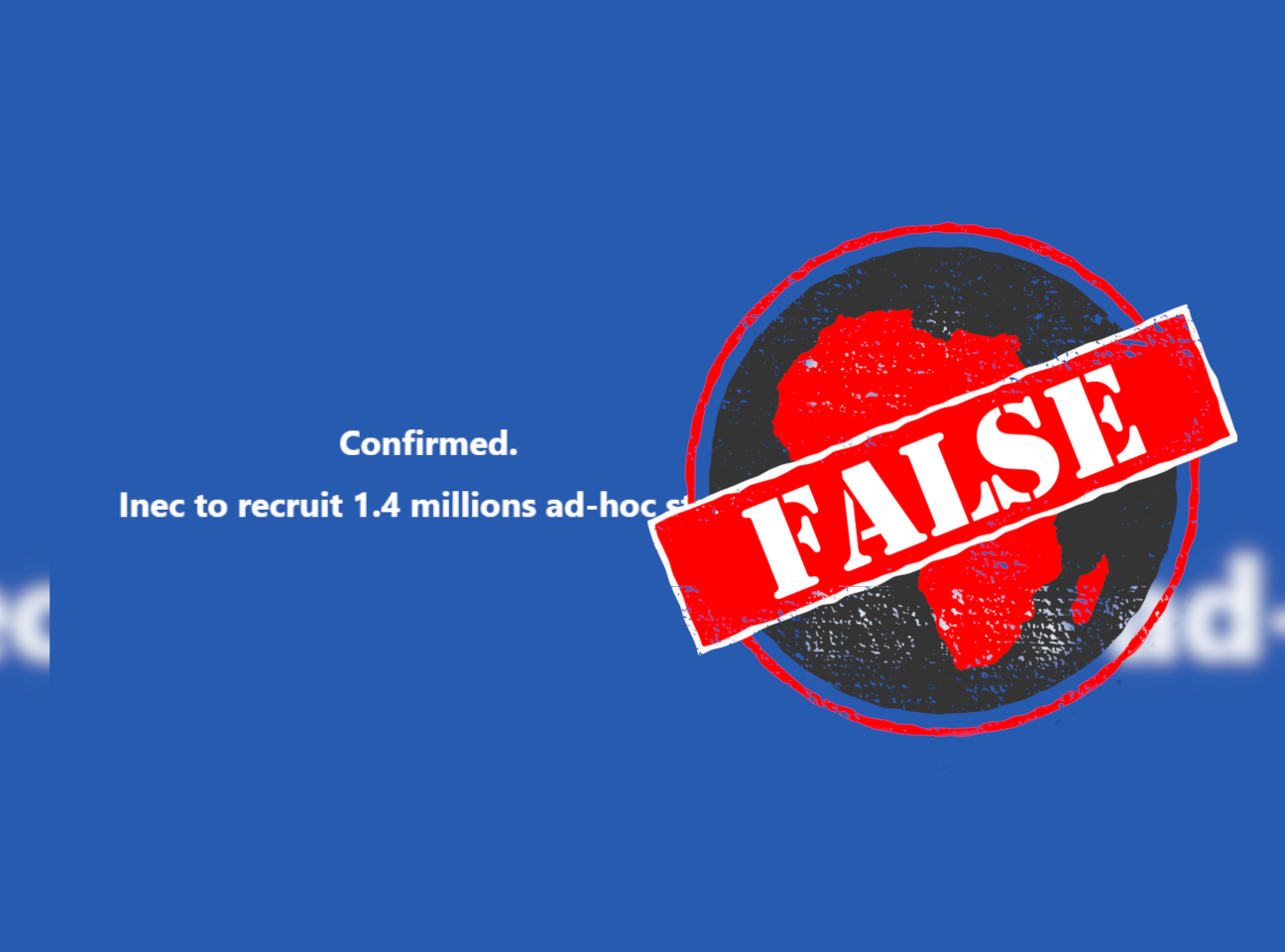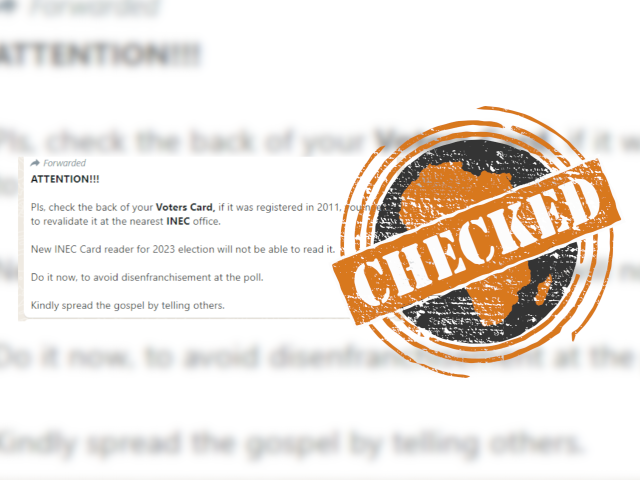IN SHORT: Despite messages still circulating on social media in Nigeria, the country’s electoral commission is no longer recruiting ad-hoc staff for the 2023 general elections.
“Confirmed: Inec to recruit 1.4 million ad-hoc staff,” reads a message posted on Facebook on 27 December 2022.
Nigeria’s Independent National Electoral Commission, or Inec, is apparently recruiting ahead of the country’s general elections to be held in February and March 2023.
Another Facebook post reads: “Apply for INEC ad-hoc Staff Recruitment for 2023 General Elections. The Independent National Electoral Commission (INEC) was established by the 1999 Constitution of the Federal Republic of Nigeria to among other things organize elections into various political offices in the country.”
But is Inec recruiting staff? We checked.

Fake recruitment
On 3 January 2023, Inec posted on Facebook that the job alert was fake.
“The Public should note that the Commission is no longer recruiting Ad-Hoc staff for the 2023 General Election. The INEC Ad-Hoc Staff Recruitment Portal was officially shut down on 14th December 2022,” it said.
In a statement signed by Rotimi Oyekanmi, Inec’s chief press secretary, he said that Inec’s recruitment portal for the 2023 elections was open from 14 September to 14 December and the commission was no longer recruiting.
Republish our content for free
For publishers: what to do if your post is rated false
A fact-checker has rated your Facebook or Instagram post as “false”, “altered”, “partly false” or “missing context”. This could have serious consequences. What do you do?
Click on our guide for the steps you should follow.
Publishers guideAfrica Check teams up with Facebook
Africa Check is a partner in Meta's third-party fact-checking programme to help stop the spread of false information on social media.
The content we rate as “false” will be downgraded on Facebook and Instagram. This means fewer people will see it.
You can also help identify false information on Facebook. This guide explains how.



Add new comment